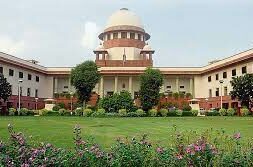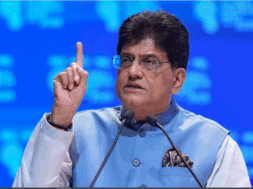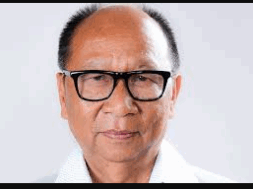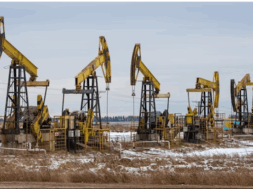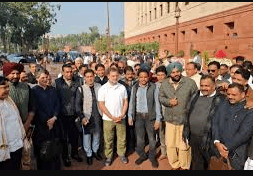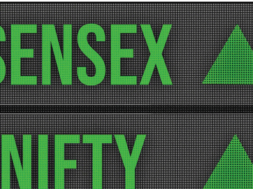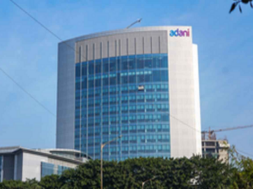
SC Extends Stay on Delhi Demolition till Further Orders, Takes Serious View of Demolition after Stay Orders
Manas Dasgupta
NEW DELHI, April 21: Taking a serious view of the continuation of the demolition drive even after it ordered a halt, the Supreme Court on Thursday extended the status quo in Jahangirpuri in Delhi till further orders and fixed the next hearing in the case two weeks later.
Issuing notice on two petitions filed by the Jamiat Ulama-i-Hind challenging Wednesday’s demolition drive in Jahangirpuri and also similar actions in other states, a bench of Justices L Nageswara Rao and B R Gavai also asked those whose properties were allegedly demolished to file affidavits so as to ascertain if they had received any notice. The North Delhi Municipal Corporation (NDMC) would file its reply. The court said it would list the case after two weeks. The court, however, refused to give a blanket ban on demolition of encroachments across the country.
To mild objections from the solicitor general Tushar Mehta, who was representing the NDMC, about continuing with the stay, Justice Rao shot back, “do you want the structures to be demolished? And thereafter what will be left?” The court made it clear that it had no intention to turn a blind eye to demolitions that continued after the status quo order.
“Mr. Solicitor, we take a serious view of the demolitions that took place after… after information [about status quo order] was given to the Mayor… We will deal with it later,” Justice Rao told Mehta. “We will take a serious view of all demolitions that took place after the Supreme Court decision was communicated to the Mayor,” the Supreme Court said.
During the hearing, Communist Party of India (Marxist) leader Brinda Karat, represented by senior advocate P.V. Surendranath and advocate Subhash Chandran, submitted that the demolitions had continued despite the Supreme Court’s status quo order. “She witnessed the razing of six or seven buildings… She had to physically resist… Then only they stopped. If she had not been there, they would have completed the demolition of the entire Block C, My Lords… I am not bringing in politics. This is a fact,” Surendranath submitted.
“The status quo order was passed at 10.45 a.m. What time was it communicated,” Justice Rao asked. “The Mayor himself had gone on media at 11 a.m. to say that Supreme Court order would be complied with… But then he complied with it at 12.45 p.m.,” senior advocate Dushyant Dave submitted. Senior advocate Kapil Sibal, who was present in court on Wednesday when the status quo order was passed, said he had urged the parties to immediately communicate the status quo order to the authorities. However, despite this, the demolition had continued.
During the hearing, the Supreme Court was told that a “particular section of society” is being targeted. Advocate Dave, representing the Jahangirpuri petitioners, argued that after a complaint by the Delhi BJP chief to the Mayor of the North Delhi Municipal Corporation, an overnight decision was taken to remove encroachments from the violence-hit area and the drive was launched without notice. The civic body took the BJP leader’s wish “as their command”, the lawyer charged.
On Wednesday, the Supreme Court halted the anti-encroachment drive after taking note of a petition by the Jamiat Ulama-i-Hind that buildings of Muslim riot-accused were being razed in states like Uttar Pradesh, Madhya Pradesh and Delhi. But the bulldozers did not stop and several shops and structures outside a mosque were razed before a second intervention, by Chief Justice NV Ramana, finally ended the drive.
The court also asked Mehta if the NDMC required bulldozers even to remove chairs and tables. “Do you need bulldozers to clear stalls, chairs, tables and boxes,” the bench asked after the Solicitor General explained that the law permitted the removal of “stalls, benches, boxes, ladders”, etc, occupying public streets and footpaths without permission.
“So, the demolition carried out yesterday [in Jahangirpuri] was restricted to benches, boxes and chairs,” Justice Rao asked the Solicitor General. “Whatever was on public street, on footpath… That is my instruction,” Mehta said. “For stalls, benches, boxes, ladders and chairs, do you need a bulldozer,” Justice Gavai asked to which Mehta conceded, “when you need bulldozers, you need it for buildings.”
This was an “extraordinarily important issue” for the country, Dave said, alleging that these demolition drives were targeting one community after communal clashes. The judges asked: “It only pertains to an area. What national importance?” Dave replied: “It’s in every riot-affected area. Nothing like this happened in 1984 or 2002. Why suddenly? Delhi has an Act on encroachments. A particular section of the society is being targeted. This is the warning that our constitutional framers gave us.”
He accused the civic agency of targeting the poor and helpless without warning. “Reasonable opportunity is to be given. You have destroyed homes now. Who is responsible? You will not touch Sainik Farms and South Delhi where every other home would be unauthorised but you will come to demolish homes of poor people,” Dave said. “There are 1,731 unauthorised colonies in Delhi housing more than 50 lakh people. But you pick up one colony because you target one community…This is a country which is governed by the Constitution and the rule of law. How can this at all be permitted? It’s not a matter of debate.”
The senior counsel contended that “right to life includes the right to a shelter. And it would be inconceivable that without giving notice, they come and do this…This is precisely what we are against, the law of jungle.” Sibal sought a stay on all such drives. But Justice Rao said, “We are not going to stay demolitions in the country.” Sibal said he was only seeking stay on demolitions “in this manner, through bulldozers”. “We will see,” the court replied, adding “demolitions are always with bulldozers or with some other machines”.
Sibal argued that while encroachment is a serious problem, “what is happening today is you are associating Muslims with encroachment. That’s the heart of the problem.” Justice Rao queried, “Were no Hindu properties demolished yesterday?” The Centre refuted the allegations that only Muslims had been targeted. Pointing to a Hindu resident of Jahangirpuri approaching the court seeking compensation for demolishing his premises, Mehta said it “shows that allegations…that one community is targeted are factually incorrect.”
Contradicting Sibal, Mehta said statistics from Khargone in Madhya Pradesh where similar action took place show there was no targeting of any particular community. “There, 88 affected parties are Hindus and 26 are Muslims. These are government records,” he said. “I’m sorry I’m required to bifurcate them. Government would not bifurcate them but the petitioner compels me to satisfy your Lordship.”
Kapil Sibal had earlier said, “Remarks have been made by a Minister in Madhya Pradesh that if Muslims carry out such attacks, then they should not expect justice. People who were not even in the area on day of incidence to their house was demolished,” Sibal said, referring to the demolitions in Khargone, where clashes erupted during a Ram Navami procession.
Mehta also refuted the allegations that drive was carried out in Jahangirpuri without any notice. “As far as Jahangirpuri is concerned, the drive to remove what was on footpaths has been done several times since January. 19 April was the fifth drive this year,” he said.
Refuting charges that notice was not issued to the affected parties, Mehta said, “Notice was issued…The government is also concerned while maintaining rule of law, we are also bound to maintain Delhi Municipal Corporation Act…Let them say that A, B, C D houses or whatever on outside was (in) outskirt was demolished because they participated in the riots, let them come and say.”
Mehta insisted that notice was issued as per the rules. “Unless your Lordships are informed that this demolition was without notice – they generally come and say that nothing in the country should happen except in accordance with law – let an individual come and say…that I was not served with the notice, I will place the notice on record,” he said. The bench then said it will ask all those who were allegedly affected to file affidavits and that the status quo will continue.
“In Khargone, notices were issued in the year 2021, hearings were given in 2021. Orders were passed for demolition in 2021 or 2022 and those orders were being implemented,” he said. Mehta said it has become a pattern that when any such incident happens, instead of individuals, some organisation approaches the court as the former would need to show focus, whether they received notices. “Thereafter the entire political spectrum jumps into it,” he added.
“Whenever an issue arises, instead of individuals, a particular section involves an organisation, and thereafter, the entire political spectrum also jumps in,” Mehta submitted. He said that if affected individuals came to court with specific grievances, the authorities could check whether prior notice was issued to them or not. “That is why organisations come and not individuals… Individuals would have to show proof and it would be clear whether notice was issued to them or not,” Mehta submitted.
Mehta said the court should be careful while entertaining petitions which may become “a precursor to every spectrum jumping onto the bandwagon.” “Rest assured, Solicitor, we know where to put a stop,” Justice Rao responded. “If we learn that these petitions are frivolous, are we not entitled to bring any action against them,” Justice Gavai said.
